Origin Stories: Ashley Hodges Bazer
When it comes to sci-fi, I had no chance of escape.
My dad loved Star Trek: The Original Series and the corresponding movies. Like the rest of the world, we received just a few channels on our television, and when Captain Kirk led his fearless crew through the Final Frontier, we were forced to watch. I also had two brothersâolder and youngerâwho loved Star Wars. While I wanted to play Barbies, they relived the space adventures of Luke and Han. I could either play alone or join in as Leia. I canât tell you the number of times my mom tried to coil my brown hair on the sides of my head.
As easily as I was indoctrinated into the sci-fi realm, Iâm sorry to say I wasnât all that taken with church and Godly matters. Yes, we attended on occasion. I remember catching my mom reading her Bible at the dining room table from time to time. But God certainly wasnât the focus of my childhood. I found all kinds of ways to get away from this worldâsci-fi, fantasy, theatre. I had no clue there was something bigger out there, beyond stories of the stars and colored lights of the stage. Something that would eventually change my life.
After college, I headed to California to work at Disneyland. Iâd received my degree in theatre, and I wanted to put it to good use. I became a stage manager for the various productions in the Park. (While I worked there, we celebrated the tenth anniversary of Star Tours with a re-dedication event. I âmanagedâ Carrie Fisher, C-3PO, and Chewbacca. Awesome!!) This was an amazing time in my life, but I was miserable. Missing home, I found a nice church in my neighborhood. I even sang in the choir. A year or so passed, and I had made more friends at work. Church didnât seem as important. I distinctly remember a day when I chose not to return, saying to myself, âI feel better now. I donât need God.â
Episode One of the Star Wars saga was about to release, and I got involved in some online role playing chat rooms. I created a couple female Jedi characters I played regularly. For some reason, I saved many of these chats. Perhaps it was the theatrical side of me. I loved reading dialogue out loud ⊠by myself. Playing actually became an obsession. An addiction. I wasted way too many hours absorbed in the chats. Hours I could have spent in a more positive way, had I known.
My life changed on a stretch of highway in Kansas. My time at Disney had come to an end, and I worked for a national bookseller chain. Iâd broken off a bad relationship, and as I drove home from Minnesota to Colorado, Christian talk radio was my only company. Well, either that or country music, which I couldnât stand. (No offense to country fans!) One of the programs captured my attention, and I had to pull off the side of the road because I couldnât see beyond my own tears. As the host led his listeners in a prayer of salvation, I surrendered my heart to Jesus.
I wish I could say I leapt right into church life and became a stalwart witness, but Iâd be lying. My biggest personal change at this time was eliminating swear words from my vocabulary. I did leave the chain bookseller and went to work for a ministry bookstore. God totally worked that out. Before long, I was promoted into broadcasting as a producer for their daily radio program. During this time, I met my future husband onlineâa Texan pastor living in Virginia ⊠who wasnât a sci-fi fan.
Two and a half years later, I married this man, left my family, my job and Colorado to become a pastorâs wife in Virginia. Shortly thereafter, we learned we would be parents. My world was spinning far faster than I could keep up! Iâd come all too close to losing my identity. I needed some sort of creative outlet. Those old chats Iâd saved those many years ago called to me. I pulled them out, along with the character sheets, and set to work. I would make them into a novel.
I knew Iâd have no chance getting published as a Star Wars novelist. After all, Iâd never thought Iâd be a writer. Iâd written Star Trek fanfic in middle school, but that was just to entertain my friends. What was I going to do with these characters that were such a part of me? What could I do?
God began to whisper a story in my ear. A story about a triune god set in a completely different universe. With my love of fantasy and British history, Iâve always related to God as a King, so He became the center of my storyâthe Crown. I played with the number three and came up with a ternary star system as the setting. One of my Jedi characters transformed into a dedicated follower of the Christ component of the Crown and discovered a quest only she could fulfill. She would be instrumental in the resurrection of the Ruler Prince.
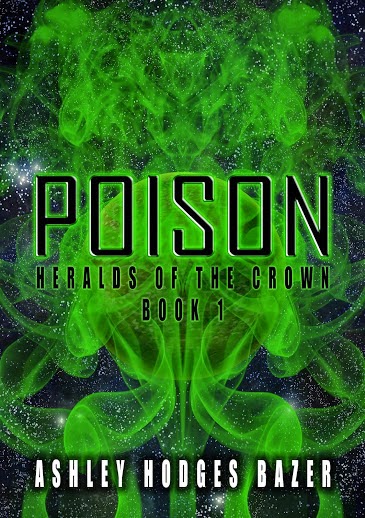 This story has yet to see the light of day. I knew only the very basics about the craft of writing, so it has all kinds of flaws. But it launched an entire saga in itself, which has now become The Crownâs Call. Fifteen sci-fi novels, broken into four subseries that follow the onset and aftermath of a religious holy war and holocaust. In fact, I just published book number oneâHeralds of the Crown: Poisonâthrough Distinguished Press.
This story has yet to see the light of day. I knew only the very basics about the craft of writing, so it has all kinds of flaws. But it launched an entire saga in itself, which has now become The Crownâs Call. Fifteen sci-fi novels, broken into four subseries that follow the onset and aftermath of a religious holy war and holocaust. In fact, I just published book number oneâHeralds of the Crown: Poisonâthrough Distinguished Press.
I think sci-fi is a great way to explore our beliefs. The possibilities are as limitless as our imagination and as our God. Heâs not bound by our knowledge of time and space. And Heâs created us in His image, giving us that spark and desire to create wonderful things. For me, writing is my ministry, my witness. I can plant seeds by writing stories of honor, character, and love in a speculative setting, reaching a far different audience than standard Christian fiction. While mainstream sci-fi may have questionable content, I can contribute something with a solid message of hope.
So, how did I become a proud Christian geek? Two passions, sci-fi and my Christian walk, fusing into one. Writing is simply my delivery device. I can see Godâs hand throughout the events that led me to this point, and I am in awe. As the heroic faction of The Crownâs Call saga, the Logia, are fond of saying, âSoli Deo Gloria!â












































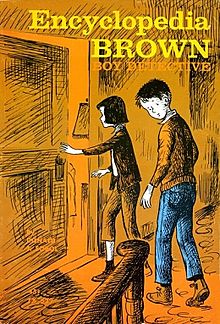
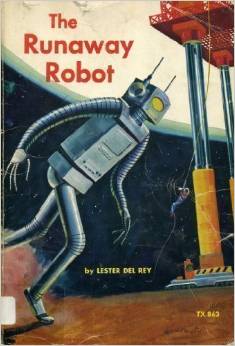
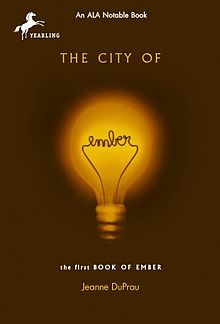


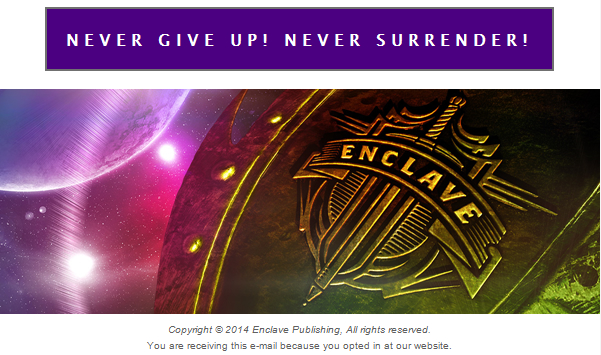


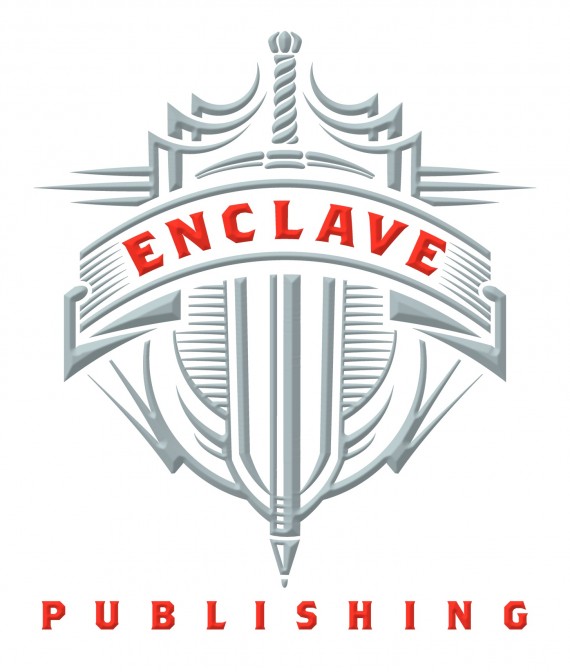
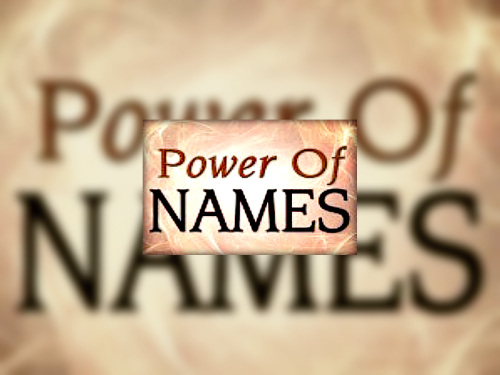
 be freed from his power. The principle has been extended to the supernatural, with people seeking to conjure up the power of gods, angels, and demons by invoking their names.
be freed from his power. The principle has been extended to the supernatural, with people seeking to conjure up the power of gods, angels, and demons by invoking their names. es theme is echoed throughout the saga. A lesser villain calls his enslaved workers ‘tools’ and tells them they have no names; the revolution begins when the workers start to share their names and band together. “What is a real name?” asks one character early on, hinting at hidden names and the truths hidden with them. And through it all the admonition and reminder comes again and again, Remember who you are.
es theme is echoed throughout the saga. A lesser villain calls his enslaved workers ‘tools’ and tells them they have no names; the revolution begins when the workers start to share their names and band together. “What is a real name?” asks one character early on, hinting at hidden names and the truths hidden with them. And through it all the admonition and reminder comes again and again, Remember who you are.






